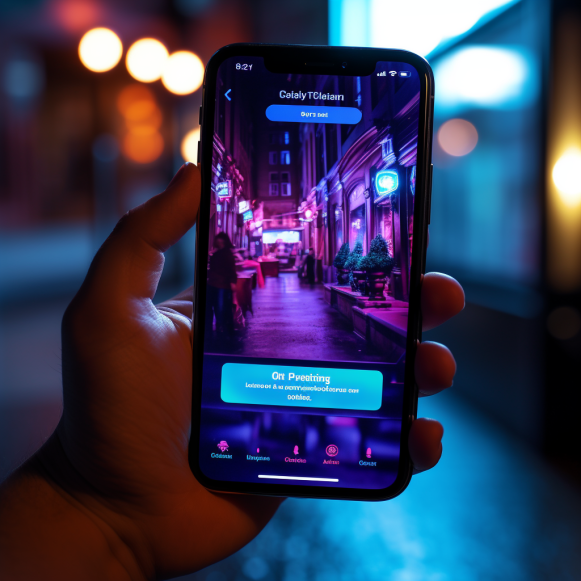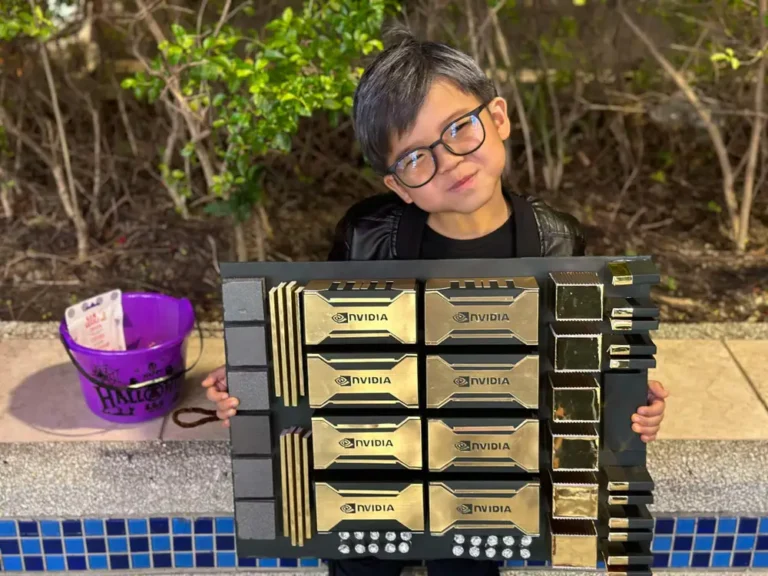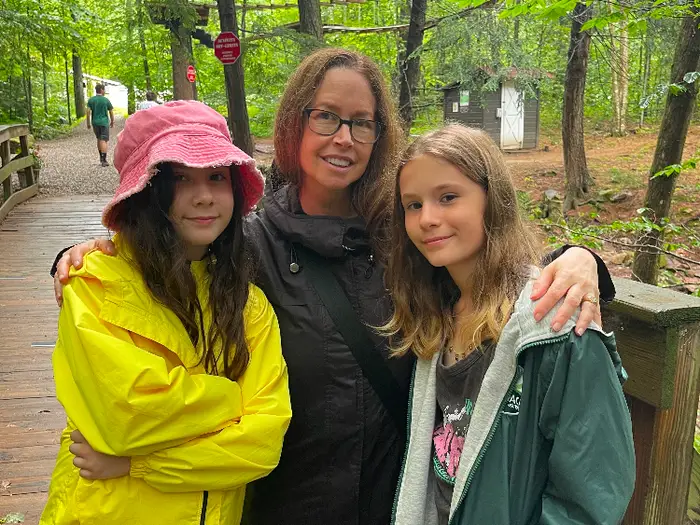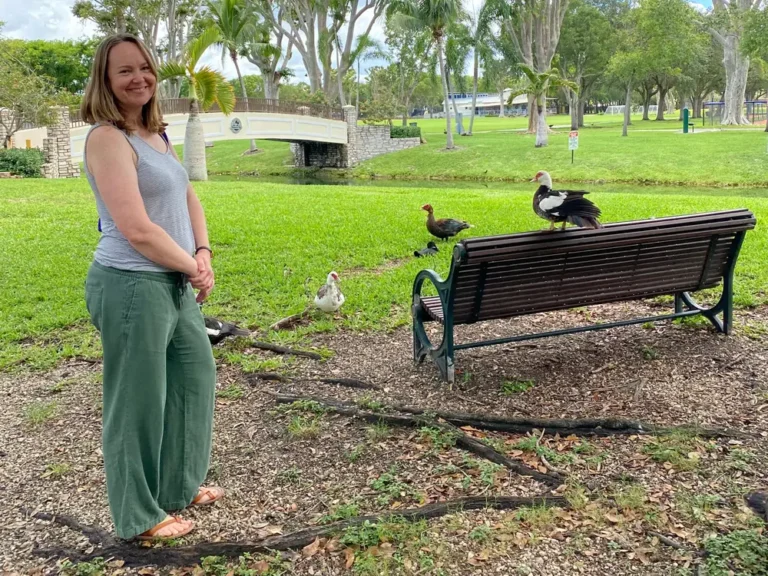Marin author Nina Schuyler plugs into AI for her latest novel
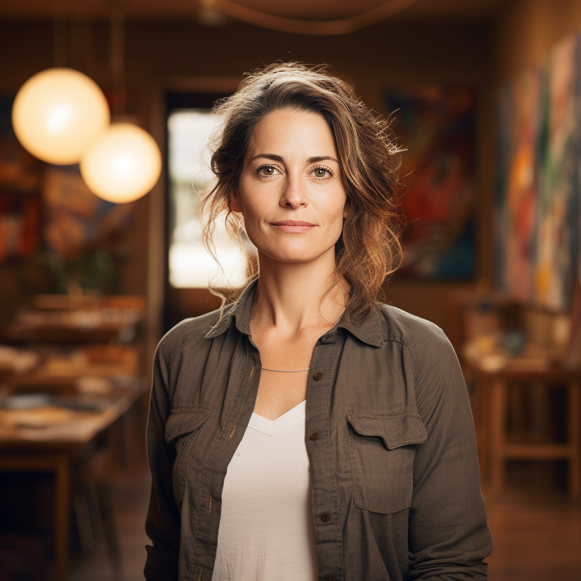
Nina Schuyler had no intention of becoming a prognosticator.
But the Fairfax author takes on that role in some ways with her riveting “Afterword,” a foresighted yet eloquent third novel that’s as timely as tomorrow’s headlines. The literary page-turner foreshadows ethical and moral quandaries arising from the deployment and potential abuse of artificial intelligence.
“It wasn’t planned in any way,” Schuyler said of her novel’s timing. “I became interested in this field because of my passion and curiosity… “I never intended to write science fiction.”
However, the fact that the Bay Area is a whirlwind of activity in that area didn’t hurt.
“This is at the heart of technology in AI,” she explained. “It’s happening right here in Mountain View, with Google A.I. (Mountain View), OpenAI (San Francisco), and Microsoft investing in it.”
The idea came to Schuyler, who teaches creative writing at the University of San Francisco, Stanford Continuing Studies, and the bookstore Book Passage, while he was “waiting to pick up a kid.” To pass the time, Schuyler, who has also worked as a journalist for the San Francisco Daily Journal, asked those involved in natural language processing (which combines computer science and linguistics) what kinds of projects they were working on.
She got a good earful.
It inspired her, but it wasn’t about cutting-edge technology.
“I’m just a writer,” she stated flatly. “I’m not a professional engineer.” I’m not into technology… “I became interested in 2016.”
Her curiosity paved the way for the unpredictable story about brilliant AI pioneer Virginia Samson, who realizes she may have unleashed something else after partially resurrecting a lover and former math tutor in true Frankenstein fashion.
Virginia, now in her 70s and living in San Francisco, talks with her former lover Haru, to whom she has given a voice but not a body. Haru’s active brain never needs to sleep, so it is constantly devouring information, leading to him becoming acquainted with Chinese dissenters and possibly ratting them out to Chinese officials.
This not only disturbs Virginia, but also forces her to reconsider her role in developing the technology and selling her algorithms to Best Friend, an AI program aimed at reducing the isolation felt by a more mature population. Virginia, on the other hand, fumbles with her creation, knowing that it could be used to crush dissent and freedom.
It’s an enthralling read that addresses the concerns of a world that is becoming increasingly reliant on artificial intelligence. Is it a byproduct of scientific progress or the gateway to our doom? The debate continues.
Schuyler purposefully avoided focusing on concerns about misinformation and the distinction between what is real and what is generated by AI. She wanted to concentrate on the relationship between Virginia and Haru, both the human and AI versions. It’s not your typical science fiction.
“(Now) this technology can even revive the dead,” she explained. “Pretend a friend is going to die. You can now use this technology to converse with them after recording 60 seconds of their voice. That is precisely what Virginia did.”
Startups are developing “conversational consultants” that use data stored in the Cloud and other locations to create a language database. A voice is formed from this, and “you kind of work through ideas and have a conversational partner,” she adds.
“That was more in my realm, and I was thinking positively about it,” she explained. “But there are a lot of frightening things about it.”
As with her previous novels, “The Translator” in 2013 and “The Painting” in 2004, a portion of “Afterword” is set in Japan, where a teen Virginia falls for her tutor.
Schuyler’s interest in Japan began at a young age, thanks to her father’s frequent trips there. She visited Japan when she was 10 years old and recalls it as “the first eye-opening experience (where) things could be different, could be done in a different way.” Her curiosity led to more visits, which led to a scholarship to Stanford University, where she studied Japanese economics and the Japanese language. She even hired a tutor after she graduated to help her become more fluent in the language.
The aesthetic of Japan is also appealing to her. “It’s elegant but spare,” she says. “I’m a minimalist.”
One of the pleasures of “Afterword” is that its protagonist is a sharp-witted, curious, and in-the-know woman in her 70s who wants to make a difference in the world.
Schuyler’s 80-year-old male friend served as a source of inspiration.
“He’s so alive,” she said, adding that hiking with him is like “walking with a library” because the retired therapist reads constantly and enjoys philosophical discussions.
“That’s how I want to age,” she declared. “I believe it is simple to calcify the mind and say, ‘Oh, I know everything.'” I’ve seen this before,’ he says, becoming cynical. However, this is only one part of the brain. Another part yearns for novelty and vitality. So that’s the one Virginia is aiming for. And that’s an affinity I have; it’s as if that’s how I’ll age.”
Schuyler isn’t slowing down any time soon. Her follow-up to her popular “How to Write Stunning Sentences” — “Stunning Sentences: The Creative Writing Journal with 80 New Prompts from Beloved Authors to Improve Your Style” — was published in 2022, and her award-winning short-story collection “In this Ravishing World” is set to be released in 2024.
She recognizes that the brave new world of technology makes some people wary and suspicious of how others intend to use it.
“It’s like, OK, what are they gathering? We have no idea. I’m not sure. There is no openness.
“It’s almost as if no one knows.”

